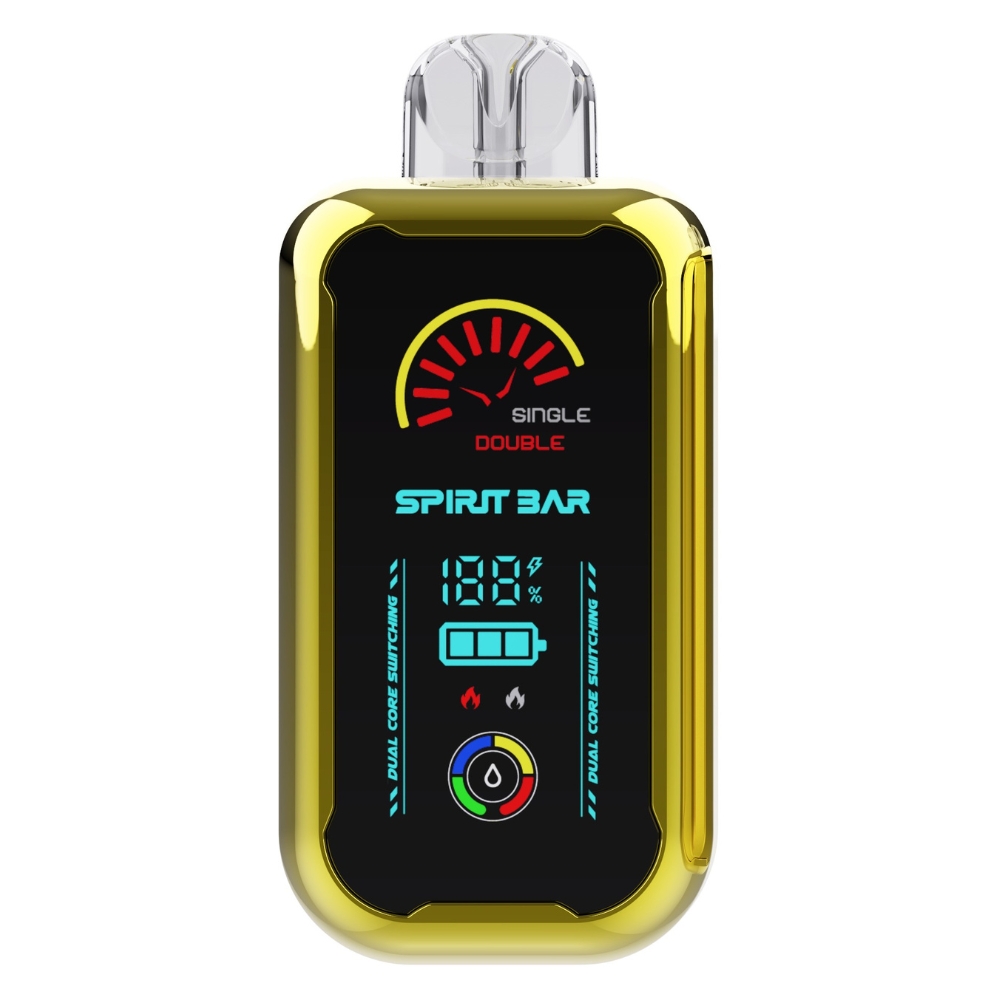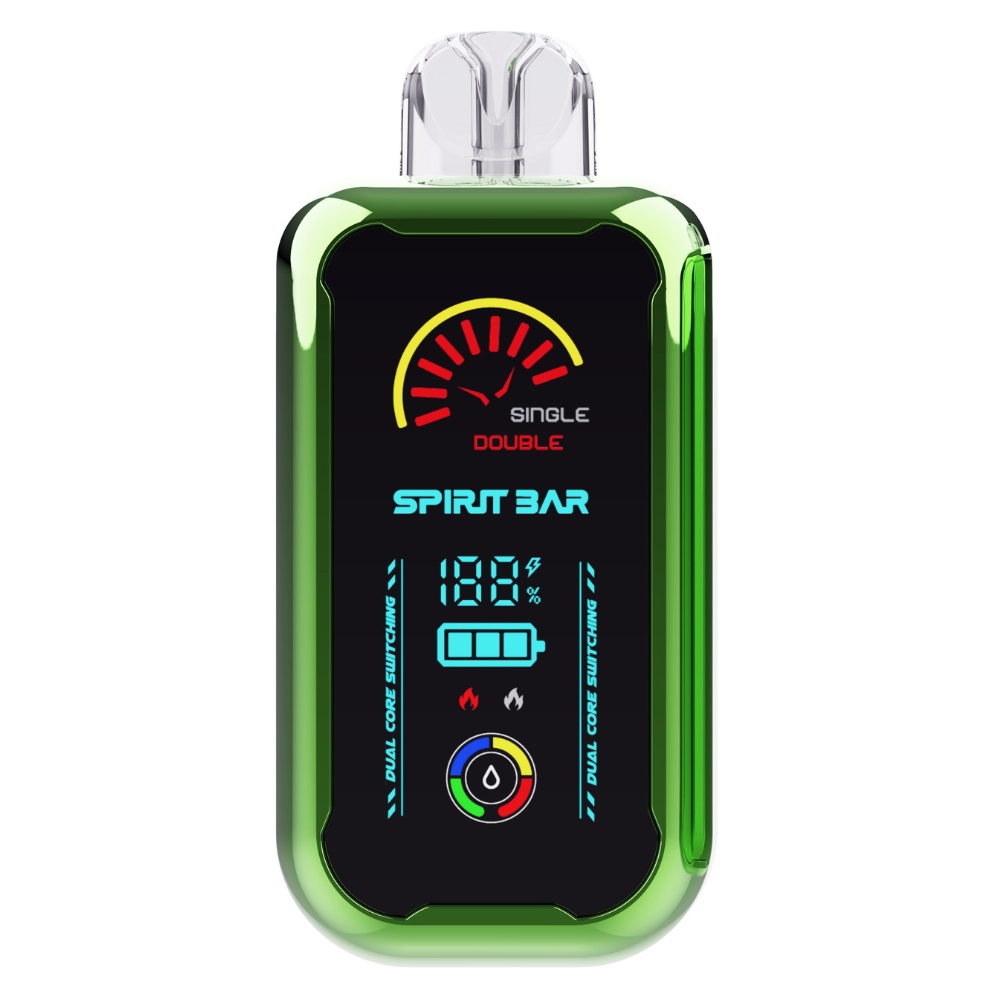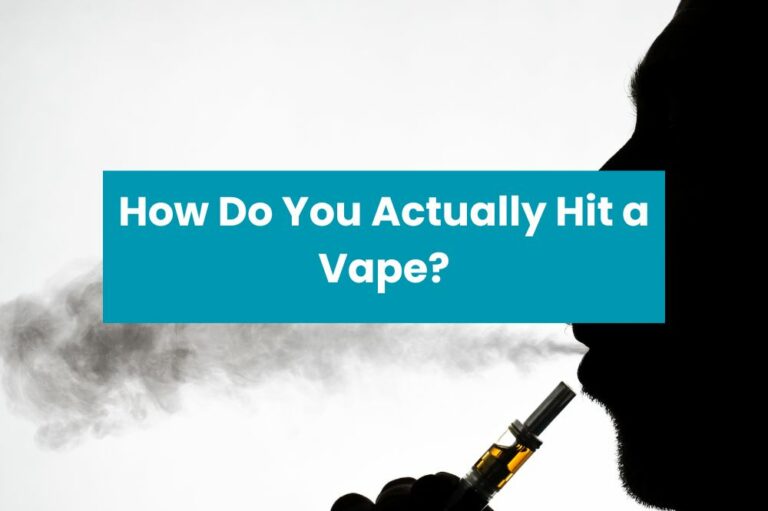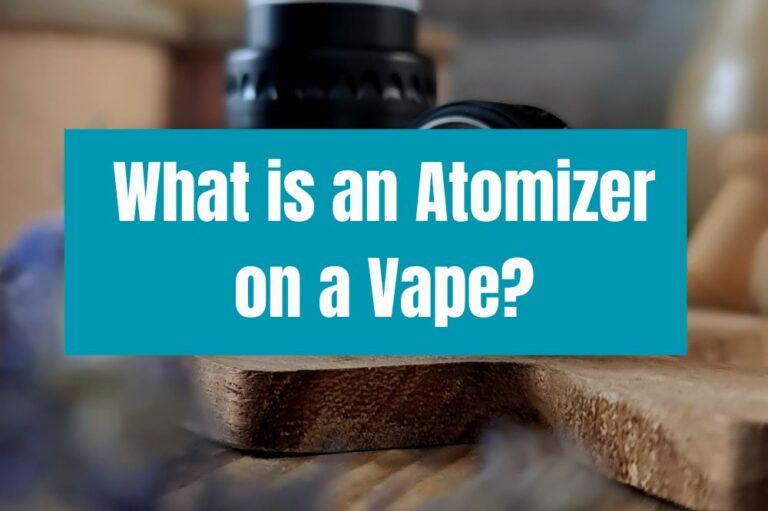Does Vaping Lower Your Energy?
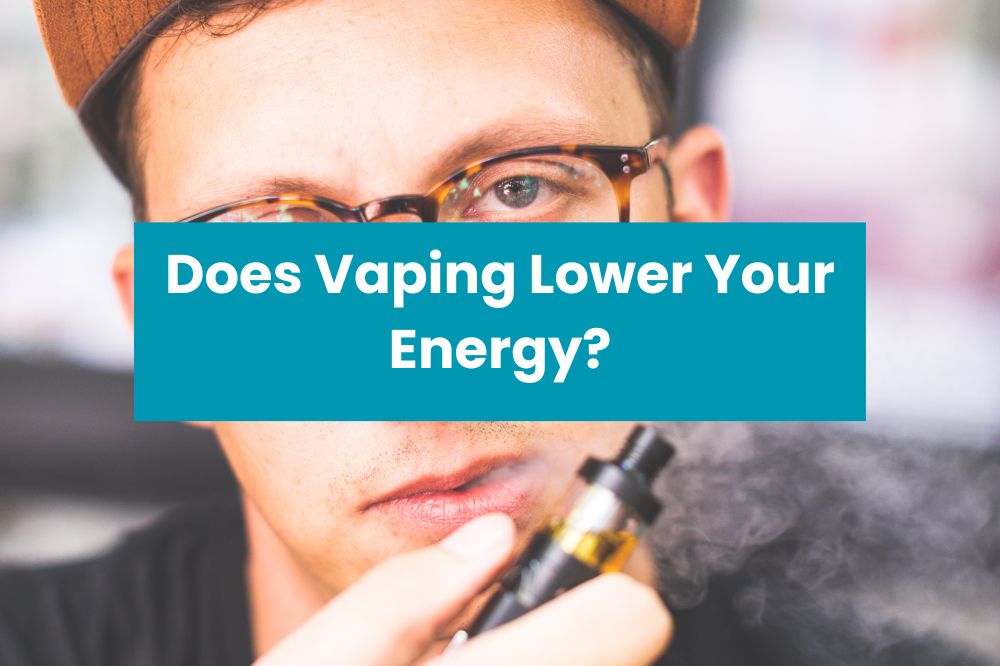
If you’re a vaper, you might have noticed a dip in your energy levels after using your device. Maybe you’ve even wondered if vaping is the cause of your fatigue. Well, the answer is not so straightforward. While some vapers report feeling more tired after vaping, there isn’t enough research to prove a direct link between the two.
One theory is that the nicotine in e-cigarettes is causing the fatigue. Nicotine is a stimulant that can increase alertness and concentration, but it can also cause a crash when it wears off. This crash can lead to feelings of fatigue and lethargy. However, more research is needed to confirm this theory and to determine if other factors, such as the flavorings or other chemicals in e-liquids, could be contributing to the fatigue.
It’s also important to note that fatigue can have many causes, and vaping might not be the culprit in every case. If you’re feeling tired, it could be due to a lack of sleep, poor diet, stress, or an underlying medical condition. It’s always a good idea to speak with your healthcare provider if you’re experiencing persistent fatigue or any other concerning symptoms.
Understanding Vaping
If you are a vaper, you might be wondering whether vaping affects your energy levels. Vaping is a method of inhaling and exhaling the vapor produced by an electronic cigarette or similar device. The vapor is produced by heating a liquid that typically contains nicotine, flavorings, and other chemicals.
While vaping is often marketed as a safer alternative to smoking, there are still many unknowns about the long-term effects of vaping. Some studies have suggested that vaping may have negative effects on your health, including your energy levels.
One of the main concerns about vaping is that it can affect your lungs. The vapor produced by e-cigarettes can contain harmful chemicals, including formaldehyde and acrolein, that can damage your lungs and reduce your lung function. This can make it harder for you to breathe and lead to feelings of fatigue and low energy.
In addition to the potential effects on your lungs, vaping can also affect your sleep. Nicotine, which is a common ingredient in e-cigarette liquids, is a stimulant that can interfere with your sleep patterns and make it harder for you to get a good night’s rest. This can leave you feeling tired and groggy during the day, which can affect your energy levels and productivity.
Overall, there is still much that is unknown about the effects of vaping on your health and energy levels. If you are concerned about the impact of vaping on your energy levels, it may be worth considering quitting or reducing your use of e-cigarettes.
Effects of Vaping on Energy Levels
Vaping is a popular alternative to smoking, but it may have some negative effects on your energy levels. Here are a few ways that vaping can lower your energy:
- Nicotine: Many e-cigarettes and vaping devices contain nicotine, which is a stimulant that can temporarily increase your energy levels. However, over time, nicotine can also cause fatigue and decrease your overall energy levels. If you’re vaping regularly, you may find yourself feeling more tired than usual.
- Lack of oxygen: Vaping can also reduce the amount of oxygen that your body gets, which can lead to fatigue and decreased energy levels. When you inhale vapor from an e-cigarette or vaping device, you’re taking in chemicals that can damage your lungs and reduce your lung capacity. This can make it harder for your body to get the oxygen it needs to function properly.
- Dehydration: Vaping can also cause dehydration, which can lead to fatigue and decreased energy levels. When you vape, you’re inhaling hot vapor that can dry out your mouth and throat. This can lead to a decrease in saliva production, which can cause dehydration. Make sure to drink plenty of water if you’re vaping regularly.
Overall, vaping can have a negative impact on your energy levels. If you’re feeling tired or fatigued, it may be worth considering cutting back on your vaping or quitting altogether.
Scientific Studies on Vaping and Energy
If you’re wondering whether vaping can lower your energy levels, scientific studies have shed some light on the issue. One study conducted by the National Institute of Environmental Health Sciences found that vaping chemicals can reduce the energy produced by the mitochondria, which are the building blocks of cellular energy. This reduction in energy can cause lung cells to have less power to do their jobs, leading to inflammatory responses that can increase lung aging. As a result, a 45-year-old who vapes might actually have the lung function of a 60-year-old.
Another study published in Respiratory Research found that little is known about the effect of vaping on the immune system. However, both traditional and e-cigarette consumption by non-smokers was found to provoke short-term effects on platelet function. This included increasing platelet activation and platelet aggregation, although to a lesser extent with e-cigarettes.
While there is still much to learn about the long-term effects of vaping on energy levels, it’s clear that vaping can have negative impacts on lung function and immune system health. If you’re concerned about your energy levels, it’s best to avoid vaping and opt for healthier alternatives instead.
In summary, scientific studies suggest that vaping can have negative impacts on energy levels due to its effects on the lungs and immune system. It’s best to avoid vaping and choose healthier options for maintaining your energy levels.
Vaping Vs Traditional Smoking: Energy Impact
When it comes to energy levels, vaping and traditional smoking have different impacts on your body. While both can cause a temporary increase in energy due to the stimulant effect of nicotine, they can also lead to a decrease in energy in the long run.
Vaping is often marketed as a safer alternative to traditional smoking, but it’s important to note that it still contains nicotine, which is known to be addictive and can have negative effects on your energy levels. Inhaling nicotine through vaping can cause a temporary increase in energy, but it can also lead to a crash later on.
Traditional smoking, on the other hand, has been shown to have a more significant impact on energy levels. Smoking cigarettes can lead to decreased lung function and oxygen flow, which can cause fatigue and decreased energy levels. This can be especially noticeable during physical activity or exercise.
In addition to the impact on energy levels, smoking cigarettes can also lead to other health issues that can affect your overall well-being. These can include respiratory issues, heart disease, and cancer.
Overall, while both vaping and traditional smoking can have a temporary impact on energy levels, they can also lead to negative long-term effects. If you’re looking to improve your energy levels and overall health, quitting smoking altogether is the best option.
Factors That Influence Energy Levels in Vaping
When it comes to vaping and energy levels, there are several factors that can influence how you feel. Here are a few things to keep in mind:
Nicotine Strength
E-liquids are a potent way to consume nicotine, which is a stimulant that can increase your heart rate and blood pressure. The higher the nicotine strength, the more likely you are to experience a boost in energy. However, this effect is usually short-lived and can quickly lead to feelings of fatigue and lethargy.
Dehydration
PG and VG, two common ingredients in e-liquids, can absorb water and lead to dehydration. This can cause you to feel tired and sluggish, especially if you’re not drinking enough water throughout the day. To combat this, make sure you’re staying hydrated by drinking plenty of water and avoiding sugary or caffeinated beverages.
Lack of Sleep
Vaping can sometimes interfere with your sleep, leading to feelings of fatigue and low energy levels. Nicotine can disrupt your sleep patterns and make it harder to fall asleep or stay asleep throughout the night. Additionally, the act of vaping itself can be stimulating and make it harder to wind down before bed.
Overall Health
Your overall health can also play a role in your energy levels when vaping. If you’re already dealing with health issues like chronic fatigue or depression, vaping may exacerbate these symptoms and leave you feeling even more tired and drained. Additionally, if you’re not getting enough exercise or eating a balanced diet, this can also contribute to low energy levels.
By keeping these factors in mind and taking steps to address them, you can help maintain your energy levels while still enjoying the benefits of vaping. Remember to stay hydrated, get plenty of rest, and prioritize your overall health and well-being.
Potential Health Risks of Vaping
Vaping has become a popular alternative to smoking, but it’s important to understand that it’s not without its potential health risks. Here are a few things to keep in mind:
- Nicotine addiction: Many e-cigarettes contain nicotine, which is highly addictive. This can lead to dependence and withdrawal symptoms when you try to quit.
- Lung damage: Vaping can cause damage to your lungs, including inflammation and irritation. This can lead to coughing, wheezing, and shortness of breath.
- Increased risk of respiratory infections: Vaping can weaken your immune system, making you more susceptible to respiratory infections like pneumonia and bronchitis.
- Chemical exposure: E-cigarettes contain a variety of chemicals, including formaldehyde, acetaldehyde, and acrolein, which can be harmful to your health.
- Explosion risk: There have been reports of e-cigarettes exploding, causing serious injuries and even death.
It’s important to understand that the long-term effects of vaping are still unknown, as e-cigarettes are a relatively new product. If you’re considering vaping, it’s important to weigh the potential risks and benefits and make an informed decision.
Ways to Maintain Energy Levels While Vaping
If you’re concerned about how vaping might be affecting your energy levels, there are a few things you can do to help maintain your alertness and focus throughout the day.
Stay Hydrated
One of the most important things you can do to maintain your energy levels while vaping is to make sure you’re staying hydrated. Vaping can be dehydrating, so it’s essential to drink plenty of water throughout the day. Aim to drink at least eight glasses of water per day, and more if you’re vaping heavily.
Choose the Right Vape Juice
The type of vape juice you choose can also impact your energy levels. Some vape juices contain nicotine, which can have a stimulating effect and boost your alertness. However, too much nicotine can lead to jitters and anxiety, which can actually lower your energy levels. If you’re looking to stay alert, choose a vape juice with a moderate amount of nicotine, and avoid vaping too close to bedtime.
Take Breaks
It’s easy to get caught up in the habit of vaping throughout the day, but taking occasional breaks can actually help maintain your energy levels. Try to take a break from vaping every hour or so, and use that time to stretch, take a walk, or do some deep breathing exercises. This can help refresh your mind and body and keep you feeling alert and focused.
Get Enough Sleep
Finally, getting enough sleep is crucial for maintaining your energy levels while vaping. Vaping can disrupt your sleep patterns, so it’s important to establish a regular sleep routine and stick to it as much as possible. Aim for at least seven hours of sleep per night, and avoid vaping too close to bedtime to help ensure a good night’s rest.
By staying hydrated, choosing the right vape juice, taking breaks, and getting enough sleep, you can help maintain your energy levels while still enjoying the benefits of vaping.
Expert Opinions on Vaping and Energy
According to a Johns Hopkins expert, vaping can cause short-term fatigue and difficulty concentrating. This is because nicotine, found in both traditional cigarettes and e-cigarettes, is a stimulant that can increase energy levels and alertness. When someone stops using nicotine, their body may initially experience withdrawal symptoms such as fatigue.
However, there are conflicting opinions on the long-term effects of vaping on energy levels. Some experts argue that vaping can lead to a decrease in hemoglobin count, which can cause fatigue. On the other hand, proponents of vaping argue that it can actually increase energy levels by providing a healthier alternative to smoking.
It’s important to note that the long-term effects of vaping are still being studied, and there is not yet enough evidence to draw firm conclusions. However, it’s clear that vaping can have both short-term and potentially long-term effects on energy levels.
If you’re concerned about how vaping is affecting your energy levels, it’s a good idea to talk to your doctor or a healthcare professional. They can provide you with personalized advice and help you make informed decisions about your health.
Dispelling Vaping Myths
If you’re considering vaping, you’ve probably heard a lot of different opinions about it. Some people say it’s a great way to quit smoking, while others claim that it’s just as bad as smoking or even worse. With all these opinions floating around, it can be hard to know what to believe. In this section, we’ll dispel some of the most common myths about vaping.
Myth: Vaping Lowers Your Energy
One of the most common myths about vaping is that it lowers your energy levels. Some people claim that vaping makes them feel tired or sluggish. However, there is no scientific evidence to support this claim. In fact, many vapers report feeling more energized after switching from smoking to vaping.
It’s important to note that nicotine, which is present in both cigarettes and e-cigarettes, can have an effect on your energy levels. Nicotine is a stimulant, which means it can increase your heart rate and give you a temporary energy boost. However, this effect is short-lived and can lead to a crash later on. It’s also worth noting that many e-liquids come in nicotine-free options, so you can enjoy the flavor and sensation of vaping without the stimulant effect.
Myth: Vaping is Just as Bad as Smoking
Another common myth about vaping is that it’s just as bad as smoking, or even worse. While it’s true that both smoking and vaping involve inhaling chemicals into your lungs, there are some key differences between the two. Smoking involves burning tobacco, which releases a host of harmful chemicals into the air. Vaping, on the other hand, involves heating e-liquid, which typically contains fewer harmful chemicals than tobacco smoke.
That being said, vaping is not completely risk-free. E-cigarettes are still relatively new, and there is still much we don’t know about their long-term effects on health. However, most experts agree that vaping is likely to be less harmful than smoking.
Myth: Vaping is a Gateway to Smoking
Some people claim that vaping is a gateway to smoking, and that it can lead young people to start smoking traditional cigarettes. However, there is no evidence to support this claim. In fact, many studies have found that e-cigarettes are an effective tool for smokers who want to quit smoking traditional cigarettes. Additionally, there is no proof that vaping leads young people to smoke tobacco.
In conclusion, there are many myths and misconceptions about vaping. However, with accurate information and a little bit of research, you can make an informed decision about whether vaping is right for you. Remember to always consult with your doctor before making any changes to your smoking or vaping habits.

